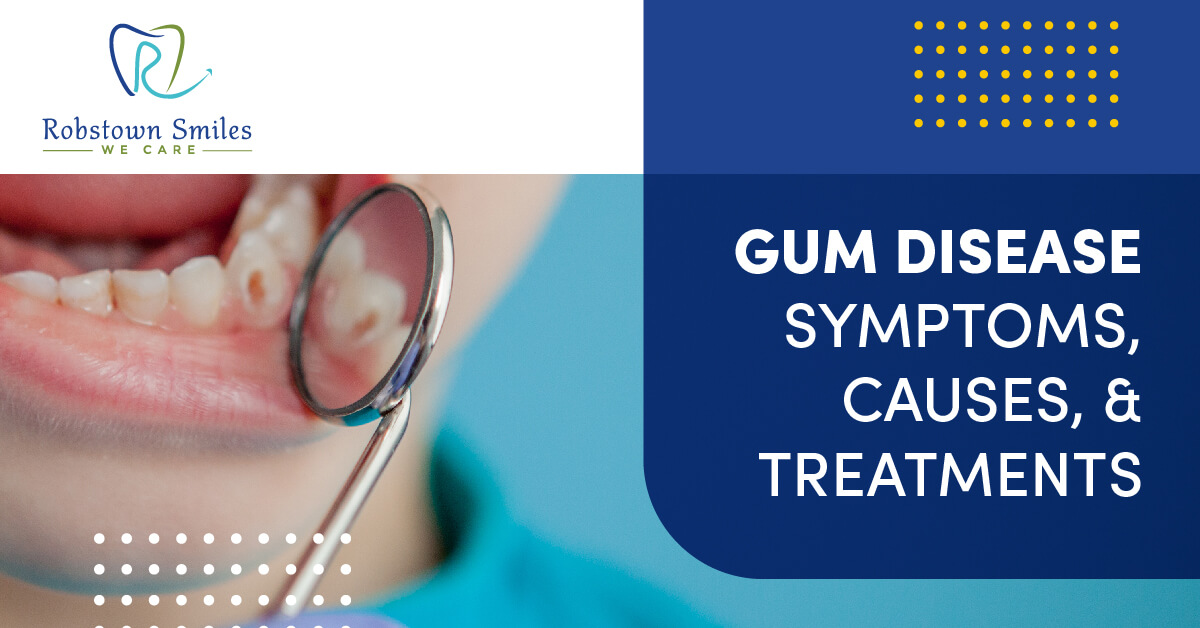What is a Gum disease?
Periodontal disease, sometimes referred to as gum disease, is a bacterial infection that affects the gums and occasionally the bone that surrounds teeth. Gum illnesses range from mild irritation of the gums (gingivitis) to severe infection (periodontitis), and they can affect one tooth or numerous teeth. Your gums require specific attention because if you don’t take care of them, you won’t be taking care of your mouth.
Gum Disease Signs and Symptoms
The severity of gum disease can range from mild gum inflammation and redness (gingivitis) to a more serious infection (periodontitis). Gum disease symptoms frequently may not become apparent until periodontitis has developed from gingivitis. Generally speaking, gingivitis is an inflammation that develops around a tooth as a result of plaque and tartar accumulation. The main cause of periodontitis is poor dental hygiene, and adults 30 years of age and older are most susceptible to the disorder.
Symptoms Of Gum Disease Include:
Pain: You may experience tooth pain, gum soreness, or both.
Swelling: Gums that are swollen or that seem red or purple may be signs of gum disease. Gums that are healthy should be pink and firm.
Taste and smell: Gum disease may manifest as persistent poor breath and an unpleasant aftertaste.
Space: A shift in how your teeth come together when you close your mouth, or the development of spaces between your teeth. Additionally, one of the early signs of gum disease can be receding gums.
Bleeding gums: while you brush or floss is one of the signs of gum disease to look out for.
Teeth that are loose: Gums that separate from the teeth, forming pockets where more bacteria can accumulate.
Your dentist robstown tx will check your teeth and gums if you exhibit signs of gum disease to confirm the diagnosis. Early detection of gum disease signs may make treatment as straightforward as a thorough tooth cleaning and an adjustment to your at-home oral care regimen.
Causes of Gum Disease
- Not maintaining oral hygiene
- Smoking
- Genetics/Family History
- Hormones
- Medical Conditions
- Stress
- Medications
Treatments for Gum Disease
Depending on the extent of the disease and the patient’s choices, gum diseases may be treated surgically or non-surgically.
Non-surgical: Antibiotics and a non-surgical deep cleaning procedure called tooth scaling and root planing, which eliminates plaque and tartar from below the gum line, are non-surgical treatments for treating gum infections.
Surgical: Gum diseases can be treated surgically with procedures to reduce gum-line pockets, regenerate missing bone and tissue, remove excess gum tissue to reveal more of the tooth’s surface, and graft soft tissue onto the gums to cover exposed bone and prevent tooth loss.
By maintaining a consistent dental care practice, you can help prevent gum disease before it begins. Please visit Robstown Smiles in Robstown, Texas, or call us at Robstown Smiles Robstown Tx at 361-933-0124 if you have one of the gum disorders listed above; our dentist will give you the best care possible. Keep in mind that receiving frequent dental examinations and adhering to a strict oral hygiene regimen are important for the successful treatment of any gum disorders. And stop smoking if you do. The recovery process from gum disorders might be hampered by tobacco usage, which also raises the possibility of recurrence.

